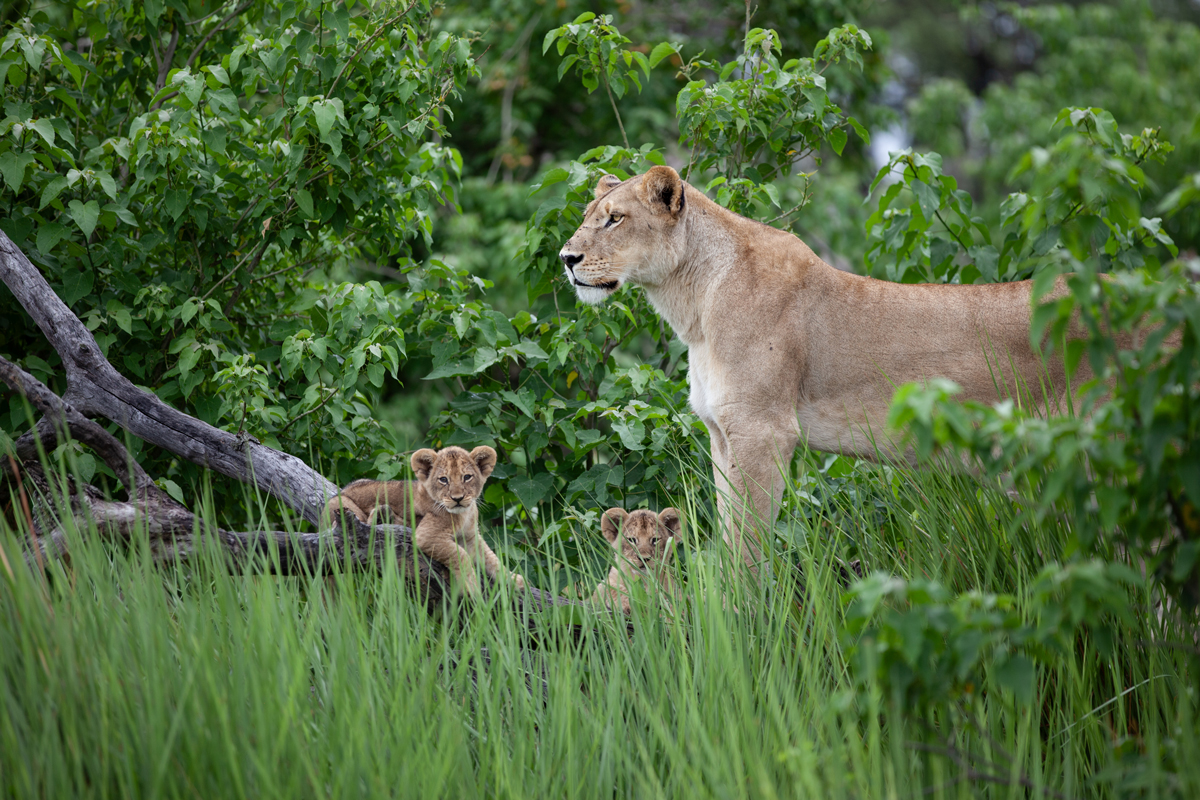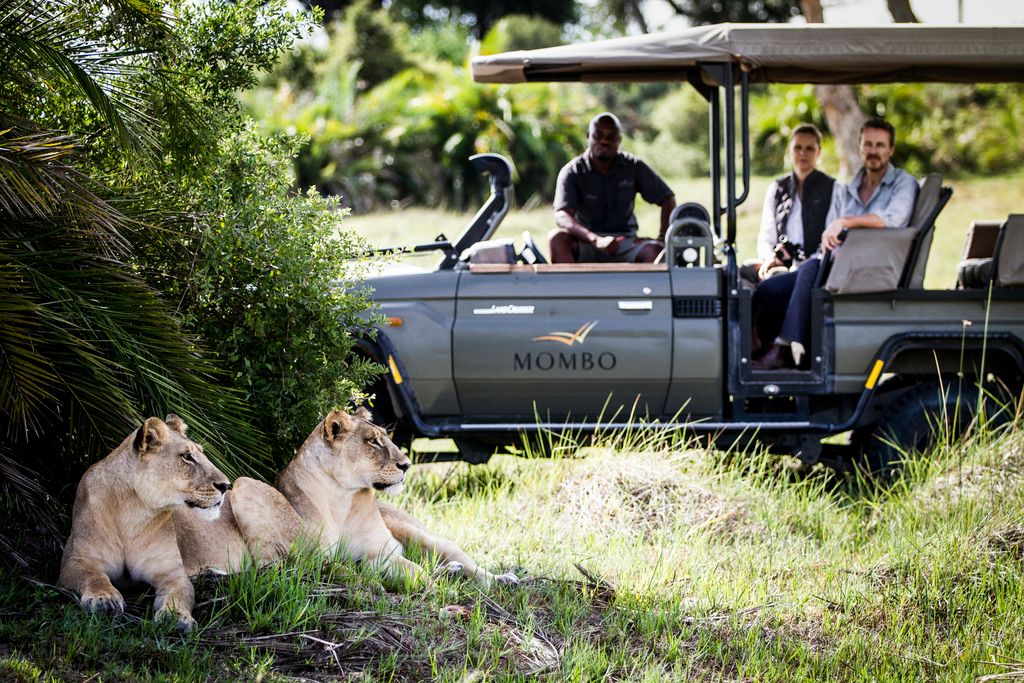Why Are We So Fascinated With Lions?
If I asked you to name the top three animals you’d like to see on an African safari, chances are you’d say lion, leopard, and elephant right? As a safari guide, I made a habit of asking my guests this very question, and these three almost always topped the list.
Rhinos, buffaloes, hippos, and giraffes usually followed close behind, but the lion, without fail, always held a special place in people’s imaginations.

.jpg)
But why is that? What is it about the lion that captivates us so much? Is it because we all grew up watching The Lion King, or is it the idea of the lion as the so called
King of the Jungle? Part of the reason, we think, it that unlike most big cats, lions are highly social creatures. The live in prides consisting of related females and their offspring, while dominant males hold overarching territories at least for as long as they can defend it. This social behaviour is both relatable and just incredible to observe.

A good way to understand lion dynamics is to look at how they choose their territories. Female lions, being the core of the pride, select their home based on resources and security which is important for rearing their young. Males, on the other hand, are focused on the opportunity to further their genetics. They come and go, battling for dominance and the right to mate, but the females are the back bone of the pride, maintaining their territory for generations.
One of the most dramatic moments in a young male lion’s life comes when he is kicked out of his pride. As he reaches sexual maturity, the dominant males see him as a threat and drives him away. This exile might seem harsh, but it plays a crucial role in preventing inbreeding and maintaining genetic diversity. These young males often team up with their brothers or other outcasts, forming coalitions. Over time, as they grow stronger, they start challenging older males for control of new territories. This cycle of dominance and displacement is an essential part of lion society.

While male lions battle for power, lionesses must navigate these changes carefully. Interestingly, they are often quick to submit to new males to ensure their own survival and that of their cubs. I once witnessed a particularly clever lioness put on a remarkable display of strategy. At the time, her sisters had young cubs, and a new male had entered the area, posing a serious threat. To protect the cubs, this lioness - who we suspected was sterile, as she had never conceived despite multiple matings throughout her life - took it upon herself to distract the male. For several days, she lured him away from the pride, entertaining his advances while her sisters moved the cubs to safety. Then, in an almost cinematic moment, she took her chance to slip away while the male was napping. Needless to say, he wasn’t too impressed when he woke from his midday slumber!
Over the years, I watched as the same pride of lionesses held their territory while different coalitions of males came and went. Some ruled for only a few months, others for a few years, but in the end, they were always replaced by the next generation of ambitious young males. This constant shift in power is what makes lion dynamics so fascinating. While we often see the lion as a symbol of strength and dominance, the reality is far more complex - a world of alliances, strategy, and survival.


So next time you find yourself on safari, watching a pride of lions lazing in the sun, remember that their lives are anything but peaceful. Behind those golden eyes lies a story of ambition, resilience, and the never-ending struggle for survival.
- Written by Robyn Sewell

We create safaris in 12 African countries. Your adventure starts here.
Keep reading

A few guiding questions we've sat with - and invite our guests to sit with too - as a new year unfolds.

Learn how to plan a luxury safari in Africa with Wild Again. From choosing destinations, lodges, and wildlife experiences to creating a bespoke itinerary, our step-by-step guide helps you design the perfect African safari for families, couples, and first-time travellers.

Founder, Private Guide and Safari Planner
Being born the daughter of David Attenborough (it’s true but he’s probably not the one you’re thinking of) I don’t believe I ever really had much choice about what direction my life would take. I grew up in the city of Durban, South Africa but for as long as I can remember nature has called to me. Whenever I could I would escape to the forests around my home barefoot and in search of chameleons and red duiker to befriend.
And so in 2010, after completing my Journalism and Media Studies degree, I followed that calling to the wilds of Southern Africa to become a game ranger. I planned to stay for a year but it turned into ten. During that time, I worked at Phinda Private Game Reserve, Ngala Private Game Reserve and Londolozi Game Reserve, some of South Africa’s most prestigious lodges and immersed myself in the natural world. I learnt to track animals with Zulu and Shangaan trackers and spent as much time as I could on foot approaching animals with my guests. I also put my photojournalism degree to use by becoming a specialist photographic guide. I travelled to Botswana, Namibia, Mozambique, Zimbabwe, Tanzania, Zanzibar, Uganda, Israel, Jordan, Egypt, India and throughout South America in search of wildlife. My greatest adventure was living in Gabon training local guides for the WWF and Smithsonian Institute, where we spent weeks at a time living like early nomads in the dense and remote coastal forests, fulfilling a life-long dream of tracking and habituating wild gorillas. Seeing how embodied and present animals are inspired me to begin practicing yoga. I am a qualified vinyasa and yin teacher and spent six months training under a Hatha master in Boulder, Colorado. I am also a certified Martha Beck life coach. With this mixture of knowledge, interests and skills, I started Wild Again to help others really experience the wild places I know and love so much. Through my specialised Wellness Safaris that incorporate yoga, meditation, mindfulness and personalised life coaching I continue to grow more conscious safaris that return people to nature and to themselves. As we re-wild ourselves we hear the earth, our common mother, again. It is only then that we can co-create with her healing.
Tell us if you’re keen to plan a safari or join a retreat. We’re ready to create your dream experience.






















